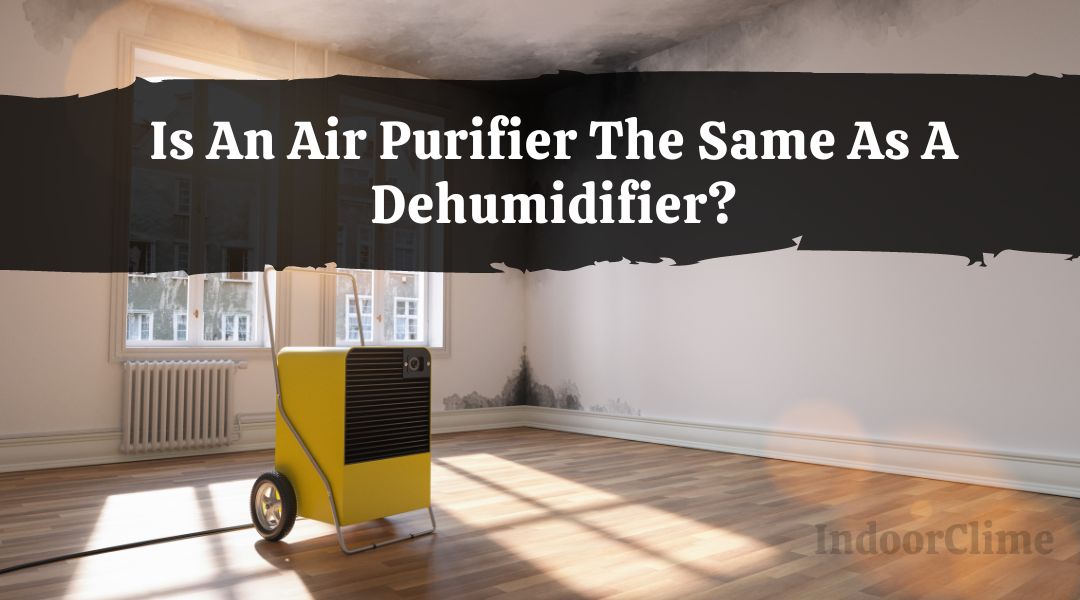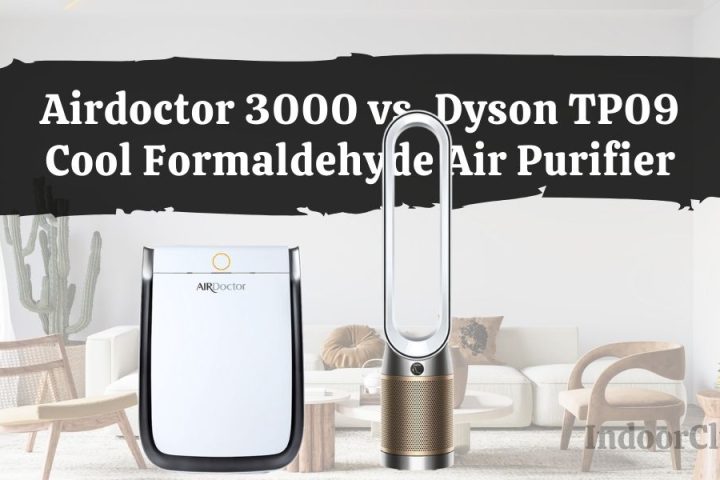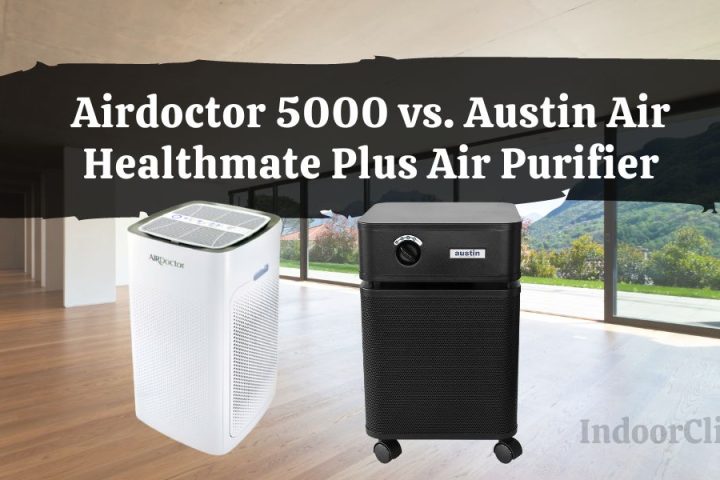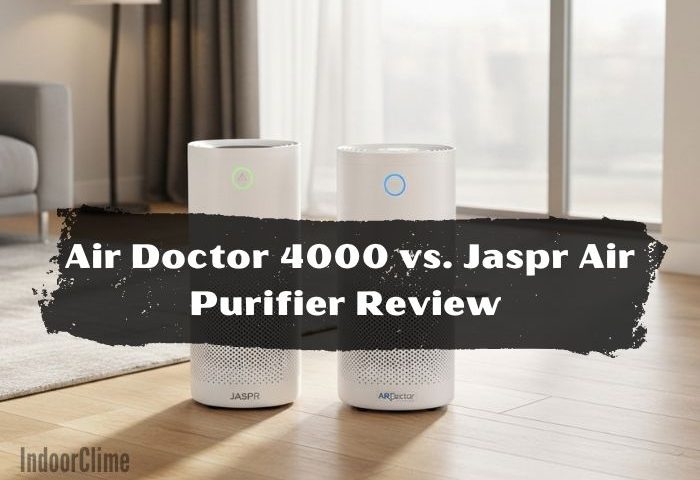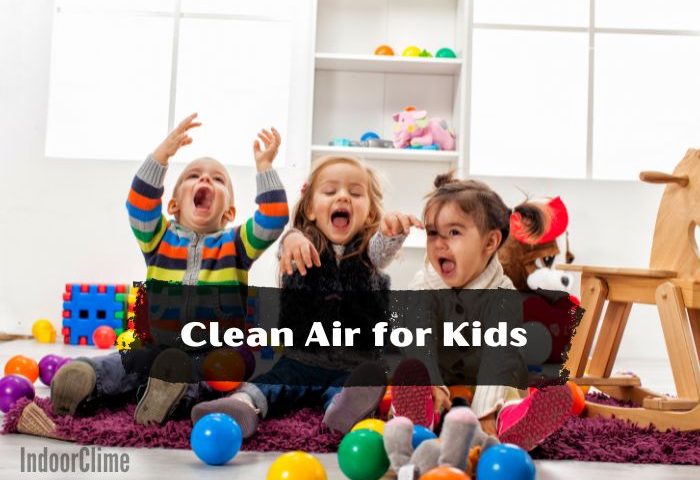Many people think that air purifiers and dehumidifiers are the same. But if you look into what makes these two different, you are lucky!
Today, I will share some key differences between air purifiers and dehumidifiers.
Both air purifiers and dehumidifiers are great devices for people with allergies or asthma.
Both also work to minimize the allergens that are present in any room. However, it is one of the reasons why others find it hard to decide which is better to use at home.
It cannot be very clear to understand the difference between the two at first, but by the end of this guide, I hope you will differentiate what exactly you need.
Understanding Dehumidifiers and Air Purifiers
To understand what makes the two different from each other, remember these two things: first, air purifiers circulate the air through a filter while a dehumidifier sucks in the moisture; and second, air purifiers remove harmful pollutants in the air (including dust, pollen, bacteria) while dehumidifiers draw out moisture from the air.
Dehumidifier vs. Air Purifier
Here is an in-depth explanation of what both of these devices do:
What Does a Dehumidifier Do?
A dehumidifier’s primary function is to suck in moisture to lower a room’s humidity levels. In turn, microbes, molds, and dust mites that thrive in damp and humid environments will not be able to survive. Likewise, with a humidity level lower than 50%, the sources of asthma and allergies will wither and die.
What Does an Air Purifier Do?
Air purifiers circulate the air in the room through a series of filters, giving you fresher air. In turn, allergens, molds, pollen, smoke, and dust get caught in the filter, and clean air is circulated back into the room. An air purifier may help prevent molds from building up.
However, because it cannot control the humidity levels in your home, excessive moisture can cause the mold to return.
How Does a Dehumidifier Work?

It is important to remember that dehumidifiers do not clean your home’s air as an air purifier does. Instead, a dehumidifier’s job is to reduce the moisture levels in your home.
You can notice that when using a dehumidifier, the humidity decreases, and the damp feeling indoors also starts to decrease. I, for one, see that the wet or musty smells from molds and mildew are significantly reduced too.
The ideal range is for your room to have a humidity of below 50%. It happens every time a dehumidifier sucks the moisture out of the air and collects it inside an internal bucket.
If you have a few troubles with dust mites, lowering your room’s humidity can greatly help. Please note that these pests need moisture to grow and thrive; removing moisture from the equation can help eliminate them. I also notice that the environment feels much cooler if my house has less humidity.
To maintain your dehumidifier, you must often clean its coils and buckets and check if the coils are frosted. If they did, make sure to have them cleaned. Otherwise, you will reduce the efficiency of the device.
How Does an Air Purifier Work?

On the other hand, air purifiers remove harmful contaminants from your home’s air. These contaminants include allergens, dust, smoke, bacteria, mold spores, and pet dander. An air purifier circulates your home’s air through several internal filters.
I recommend going for an air purifier with a HEPA filter, as this can trap 99.97% of contaminants down to 0.3 microns in size. It is also considered one of the top filters present in air purifiers.
However, it just goes down to the basics – a HEPA filter is made of thousands of tiny fibers that are interwoven, which allows air to pass, but not any particles.
You can also go for air purifiers with activated carbon filters, which can help reduce the damp and musty smell in your home. But, again, do note that air purifiers cannot reduce or control your home’s humidity level. All it does is circulate clean air in a room.
You can maintain your air purifier by replacing its filter every six months.
So Is An Air Purifier The Same As A Dehumidifier?

No, an air purifier is different from a dehumidifier.
An air purifier may be for you if:
- You have health conditions like asthma, allergies, or other respiratory issues
- You want to significantly reduce the number of allergens, dust, and pet dander in your home
- You want to get rid of unpleasant odors caused by mold, pets, and smoke
On the other hand, a dehumidifier may be better for you if:
- You want to get rid of a damp or musty smell
- You want to reduce or prevent the spread of dust mites
- You have a respiratory condition that is triggered by excessive humidity
- You live in a humid area, and you want to lower your home’s temperature
- You want to reduce the growth of molds
People Also Ask
Is there a combo air purifier and dehumidifier?
Yes, there is a combination of air purifiers and dehumidifiers. One example is the Tenergy Sorbi 1000ml Air Dehumidifier w/ Air Purifying Function.
Its specifications include a true HEPA filter, auto shutoff, touch control, adjustable airspeed, ultra-quiet, and ideal for C=closets and bathrooms.
Can you use an air purifier and dehumidifier together?
Yes, you can use an air purifier and a dehumidifier together. The air purifier will clean the air and rid it of dust, allergens, and other airborne contaminants.
At the same time, the dehumidifier will pull excess moisture out of the air, making it hard for these contaminants to come back or survive.
Does an air purifier help dehumidify a room?
No, an air purifier does not help dehumidify a room. It only circulates the air inside a room and removes the pollutants present.

